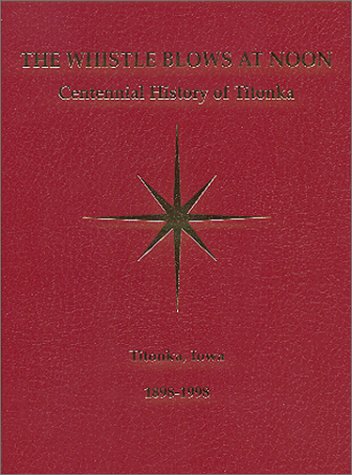Items related to The Whistle Blows at Noon : Centennial History of Titonka

"synopsis" may belong to another edition of this title.
Upper Kossuth county was the very last area of the state to be settled. The marshy area was considered unfit for the pursuit of agriculture until land became scarce in the rest of the state. Adventuresome pioneers acquired land either through homesteading or, somewhat later, purchasing it at a very low price per acre. To read the book is to come to appreciate the hard work of the early settlers in bringing the land into production and their pride in having accomplished so seemingly impossible a task. Its fertile black soil, of a great depth, has been important in the production of food throughout the century. Citizen's who grew up in the area have gone out into the far reaches of the world to make a difference. Taxes imposed on crop land and business firms have added to the treasuries of the state and nation. The area has had a far greater inpact on the quality of life available in the world today than if it had been left in its natural state, however interesting.
The centennial history of Titonka, a town with an incredibly small population of only 650, demonstrates what can be achieved when its populace, town and country, has the wisdom to set aside differences to work together to make and to keep a fine quality of life.
The history includes vivid descripions of first hand experience with agriculture, business, education and living conditions before mechanization and technoloy were developed. Accounts of students and teachers from the era of the one room rural school are included. Individual histories of the business places of the town bring back memories of former residents. The 200 family histories portray the joys and trials of raising a family in a remote rural area early in the centiury. Though not intended as a genealogy, many of them do give genealogical information. Most poignant are the histories listing children born, then ending with: and one, sometimes two or three or more, of whom died in infancy.
"About this title" may belong to another edition of this title.
- PublisherTitonka Centennial Committee
- Publication date1997
- ISBN 10 0970228015
- ISBN 13 9780970228017
- BindingLibrary Binding
- Number of pages500
(No Available Copies)
Search Books: Create a WantIf you know the book but cannot find it on AbeBooks, we can automatically search for it on your behalf as new inventory is added. If it is added to AbeBooks by one of our member booksellers, we will notify you!
Create a Want